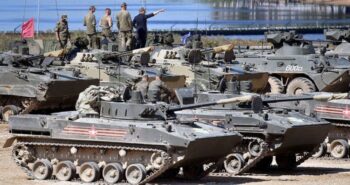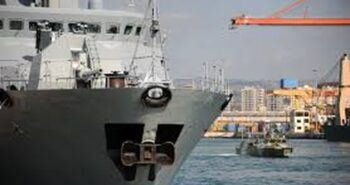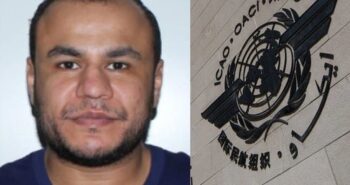By Giancarlo Elia Valori
 With a view to currently understanding what is happening in the critical relationship between the Libyan military groups, we need – first and foremost – to look at the role played by the United Arab Emirates.
With a view to currently understanding what is happening in the critical relationship between the Libyan military groups, we need – first and foremost – to look at the role played by the United Arab Emirates.
.PART (I)
In Yemen, for example, the UAEs, which are primary players in the whole Arab context of the post-“democratic revolutions”, i.e. the “colour revolutions” developed by a U.S. model born in the Balkans, have placed both the Special Forces of the Presidential Guard and the traditional support to the local anti-Houthi militias on the ground.
In Yemen, the UAEs operate from the Assab base. In 2016 they reconquered Mukhallah, another very important base, and they finally recovered Al Mokha.
In Libya, the Emirates’ strategy, which is still essential to understand what is happening there, was different: clear support to Khalifa Haftar, certainly, but also direct actions by the UAE forces in favour of the forces of Benghazi’s Libyan National Accord: in the year between April 2019 and 2020 alone, there were as many as 850 drone launches and air attacks with advanced aircrafts on GNA’s Tripolitania, probably with Emirates’ pilots.
As to air attacks alone, the UAEs leave from the baseof al-Khadim, 65 miles east of Benghazi, which they have restructured. It is from this base that also the supplies for Haftar came, sent from al-Sweihan, Abu Dhabi, as well as from Assab, Eritrea, the maritime base from which the Italian colonisation of the Horn of Africa – which would be currently very useful – left in the 19th century.
With specific reference to operations in Libya, the mediation between the Emirates and the local fighting tribes is often mediated on the spot by Egypt, with strong financial, technological and informational support, as already happened in the operations towards Tripoli carried out by Saudi Arabia in 2017.
Hence who are the UAEs supporting in Libya?
The Salafists, who often have the primary aim of fighting against the Muslim Brotherhood; many of the former fighters of Saleh’s “National Resistance Forces”; the old Republican Guard or the “Giants Brigades”, a Salafist group.
It should be recalled that in 2013 they were delegated to the government of Misrata, the “martyr city” and the centre of many revolutionary “katibe“. The city government was the prerogative of Ansaral-Sharia, a group affiliated to al Qaeda and arisen within the February 17thMartyrs Brigade, about which we will talk later on.
Hence many factions and “revolutionary brigades”, as well as much real immobility and immutability of the Libyan picture, where no one can win over the other, due to katibe and factions in government. This can be seen as a “guarantee” for silly or lazy Westerners, who think of stabilizing Libya by simply leaving it to its now very evident role of failed state.
In their heart the Emirates would like to have an al-Sisi-style shift towards authoritarianism, but in Libya there are even the Sudanese forces that also support General Haftar and collaborate closely and directly with those of the Emirates. We have already discussed Turkey’s role in Tripolitania in other articles.
Let us see, however, how the still many militarized factions operating in Libya were born and why.
Obviously the fault for all this lies with those who foolishly preached the war “against the tyrant” thinking that the Libya nor Maghreb political culture should be that of downtown Boston or London clubs.
Or of some ignorant French mythomaniacs who, in 1968, supported the pure Khmer Rouges criminals.
A global strategy for unsatisfied ladies in salons and social gatherings, a foreign policy of Mormon preachers who have their Bible “stuck in their heads”, as Voltaire used to say.
The West looks only at itself. It has an inward-looking attitude and can only think of its own silly categories. Therefore, it can no longer understand the others and hence it does not even understand itself.
The insurgency in Cyrenaica in 2011, organized mainly by French intelligence agents, was staged there because of the traditional marginalization of the East Libyan region during Gaddafi’s leadership and of the persistent ideological and organizational presence of the Senussian network, which has always had excellent relations with the Muslim Brotherhood and other groups of the Salafist tradition.
The Senussian sect has an esoteric and sometimes heterodox tradition which, over the years, has come closer to the Wahabi radicalism and literalist sectarianism of some Saudi and Egyptian traditions of Islam. As a scholar of ancient wisdom, I can say that this is a case to be studied carefully.
Hence a mix of local elites from Cyrenaica, superficial foreign agents, but often of local origin, as well as defectors from Gaddafi’s apparata, quickly organised a National Transitional Council(NTC) with French ships a few miles from the coast and even closer French submarines, as well as the advanced weapons supplied to them by the French Intelligence Services.
The NTC did mainly foreign policy, especially in the United States and the E.U. and especially contra Italiam, since Sarkozy’s dream was to have ENI bought by Total, with related presidential bribe, but it did not take care of hierarchically organizing all the various “revolutionary” groups that arose like mushrooms. Westerners paid well, and the “stuff” – as Machiavelli called it – was there for the most violent one.
We could also glimpse – very clearly – a Western campaign of simple and rough defamation against the “tyrant” Gaddafi and of progressive military support, especially in terms of air protection, to favour the “rebels”, all turned into “democrats”, with the magic of the aforesaid dull Western propaganda.
The Italians, forced by a series of subtle but very clear threats, were forced to participate in the anti-Gaddafi operation and, with this silly choice, they marked their progressive cancellation from the Mediterranean.
What about Mohammed bin Salman? Andal-Sisi? And the King of Jordan, a great and enlightened statesman?
Are they “democratic” only because they are liked by the sloppy and superficial Westerners, who in the Middle East operate like the classic bull in a China shop?
Was only Gaddafi the “villain” of this B western movie or were also the others there?
So let us forget the propaganda nonsense often orchestrated – as is the case with France – by enfantsgâtés who were trained – as I said above – among Pol Pot worshippers. After 1968, a path from De Gaulle’s enemies to U.S. propaganda men. A linear path, but the 1968 protesters did not know it.
As is well-known, the so-called Islamic revolution in Libya, but supported by Westerners, ended in August 2011, when the “democratic” Salafists and the Islamic Brothers took Sirte and Bani Walid, the last areas under Gaddafi’s control.
Tripoli’s Government of National Accord (GNA) has long had limited internal support, despite its being backed at international level with all the useless fanfares.
No one will ever know the formula of the spell that has enabled Tripoli’s GNA to receive the so-called “international legitimacy”.
The Presidential Council has been established in Tripoli since March 30, 2016. Led by Fayez al-Sarraj, former member of the Tobruk Parliament, where he represented Tripoli, it originated from a Libyan Political Agreement supported by the United Nations and signed on December 17, 2015, i.e. the Shkirat agreement, which was a pact between the two main factions to achieve a unitary national government between Tripoli’s GNA and Tobruk’s Parliament. Ninety Tobruk MPs signed the written agreements at the “Mohammed VI Centre” in the Moroccan city.
Also the 27 Tripoli MPs signed it, but they had the “proxies to vote” of other 42 MPs living in the capital city who did not leave to vote. At the time the Presidential Committee was made up of 6 personalities, all designated by the United Nations.
Later 3 other politicians were added, two representing Fezzan and one representing Cyrenaica. It was that Presidential Committee that drew up the list of Ministers of the unitary government.
We know how it ended up. The legal-political fact is that the Tobruk Parliament accepted the 2015 agreement, but refused to sign Article 8 of the Shkirat text, which would force Tripoli’s government to control the autonomous forces of Cyrenaica.
Furthermore, at the time, the Tobruk Parliament did not accept the names proposed for the future, but impossible Libyan national government. A great and definitive chaos.
However, who is Fayez al-Sarraj?
He graduated in Architecture and Town Planning from the University of Tripoli in 1982. He had secondary, but not negligible roles in Gaddafi’s regime and then inevitably joined the “revolution”.
It should be recalled, however, that the Presidential Council was the real Libyan “Head of State”.
But why did the Security Council vote unanimously the Political Agreement of December 2015?
In fact, the aforementioned Shkirat agreement of 2015 was defined mainly to resolve the dispute between the regularly elected House of Representatives operating in Tobruk-Al Bayda, the General National Congress of Tripoli and the other centripetal forces that had already been formed. The latter won the fight against two weak governments depending on “others’ weapons”.
The idea in the Shkirat pact was good in principle, but, without deciding who should be entrusted with “sovereignty”, disputes are bound to last forever.
Tripoli’s Presidential Council, currently led by al-Serraj – when, as you may recall, the current leader of Tripolitania had to arrive by sea because he knew that, if he arrived at the airport of Mitiga, he would be killed- was born, however, to create a unitary government with all “Parliaments” in Libya, not to operate alone.
The funny result is that the United Nations and all the sheep-like and spineless EU member States keep on looking the other way pretending nothing happened and treating the GNA as the only “legitimate” government. Moving forward almost by inertia, we could say. A heritage of the negative Western experiences in Iraq – but the brain is made to be used and not to project one’s own petty bourgeois preconceived ideas onto the Arab world, which is much more complex than we might think.
***
Giancarlo Elia Valori – Advisory Board Co-chair Honoris Causa Professor. He currently chairs “International World Group”, and he is also the honorary president of Huawei Italy, economic adviser to the Chinese giant HNA Group.
____________________





